📩 From the Mailbox
Robert Zubrin asks, "Are the Germans nuts?" Oogiook asks, "Who is Giuseppe Conte, really?" And Gabi Mitchell reports from Jerusalem on Biden's trip to the Middle East.
Our readers and correspondents write …

Are the Germans Nuts?
By Robert Zubrin
Many have long believed that Germans are nuts. Those versed in history can cite many examples of Germany behaving in bizarre fashion. Some critics have ascribed this to congenital mass insanity. This is unfair. Rather, it would appear that German nuttiness is due not to a lack of emotional control, but to a unique propensity to embrace a given theory and ignore all evidence that might serve to undermine it.
The latest example is Germany’s refusal to reconsider its 2014 decision to shut down all of its nuclear power plants. That year, German Chancellor Angela Merkel decided to implement a phased shutdown of Germany’s nuclear industry, which at that time provided 23 GW of electricity to the nation. This had to be done, Merkel said, to prevent a repeat of the 2012 Fukushima disaster on German soil.
In 2012, an earthquake caused a tsunami that killed 28,000 people in Fukushima, Japan, and wrecked three of the city’s six nuclear power plants. The 28,000 deaths were caused by drownings, falling buildings, exposure, suicide, stress, or the interruption of medical care. None were caused by radiation. In fact, no one outside the plant gate received a dose of radiation sufficient to affect their health in any way whatsoever. Nevertheless, Fukushima was a disaster that could not be risked in the event that Germany should be swept by a tsunami, however unlikely—or impossible—such an event might be.
So the decision was made, and where a German decision goes, there it remains. Proceeding therefore in an orderly fashion, and ignoring the Russian 2014 seizure of Crimea and the Donbas and other evidence that the policy of switching Germany from its own nuclear power plants to reliance on Russian gas might be unwise, Germany implemented a phased shutdown, so that by this year, only 3 GW of the original 23 GW remained online.
Now Russia has launched a full scale invasion of Ukraine, with the clear intention of wiping Ukraine off the map. This would bring Russian forces to Poland’s border, thereby directly endangering NATO, to which Germany proclaims its alliance.
Putin has stated his plans openly: He will use armed force to recreate the Russia Empire, which included not only the Caucasus and Central Asia, but Finland, the Baltic States, and most of Poland. The West is seeking to foil these plans by sending arms to Ukraine and implementing severe sanctions on Russia.
Sanctioning gas is key to this strategy. Russian sells more oil than gas, but sanctioning oil is difficult because oil is fungible.1 If Europe rejects Russian oil, it can easily be sold to China or India, replacing Middle Eastern oil that would then be sold to Europe. Gas, on the other hand, must flow where there are pipelines, and it must do so as it’s produced, because storing large quantities of natural gas is extremely difficult.
Russia’s gas sales to Germany earn the Kremlin around US$60 billion per year, about the value of Russia’s entire military budget. By buying Russian gas, Germany is not only funding Russia’s invasion of Ukraine, which has so far caused as many as 100,000 deaths, left ten million people homeless, and inflicted hundreds of billions in property damage in Ukraine and trillions in economic losses worldwide. It is also funding Russia’s thermonuclear and hypersonic weapons programs, which could be used to destroy the world.
Germany gets 11 GW of power from natural gas. It has shut down nearly twice that capacity in nuclear power. If Germany is actually part of the Western alliance, the rational move would be to turn its nuclear power plants back on and cease funding Putin’s program of genocide and conquest.
But German leaders see things differently. Germany is heading into an energy crisis as Russia cuts its gas supplies in retaliation for sanctions. Finance Minister Christian Lindner warned that Germany was on the brink of a “very serious economic crisis,” saying the government needed to explore all avenues to plug the gaps.
So last week, the Bundestag passed emergency legislation to reopen its mothballed coal-fired power plants. Legislators rejected the idea of restarting the nuclear power plants, or even pausing or slowing the phaseout. The imperative of protecting the German population from radiation spread by a tsunami would take precedence over all other considerations. Germany reaffirmed its commitment to shutting down the remaining 3 GW, thereby wrecking its nuclear industry for good.
German indifference to the lives of others in general, and Ukrainians in particular, is appalling. German leaders don’t appear to care that they’re funding genocide in Ukraine. Indeed, they’re facilitating it through other measures, such as refusing to send significant amounts of arms for Ukraine to defend itself, and even blocking others from doing so.
But Germans claim to be very concerned about protecting the Earth from global warming caused by CO2 emissions. They talk about visionary plans for decarbonizing their nation accordingly, but seem unable to acknowledge that the only major nation that has actually decarbonized its power grid is France, which has done so by making 75 percent of its electricity from nuclear power. Germany says it will replace its nuclear power with solar and wind, but these are unreliable power sources have proven to be—well—unreliable. In consequence, Germany has switched from clean nuclear power to filthy coal and Russian gas, and produces six times as much CO2 per GWh generated as France.
None of this should be taken as evidence that Germany favors global warming, genocide, and Russian global conquest using thermonuclear hypersonic weapons.
It’s just proof that Germans are nuts.
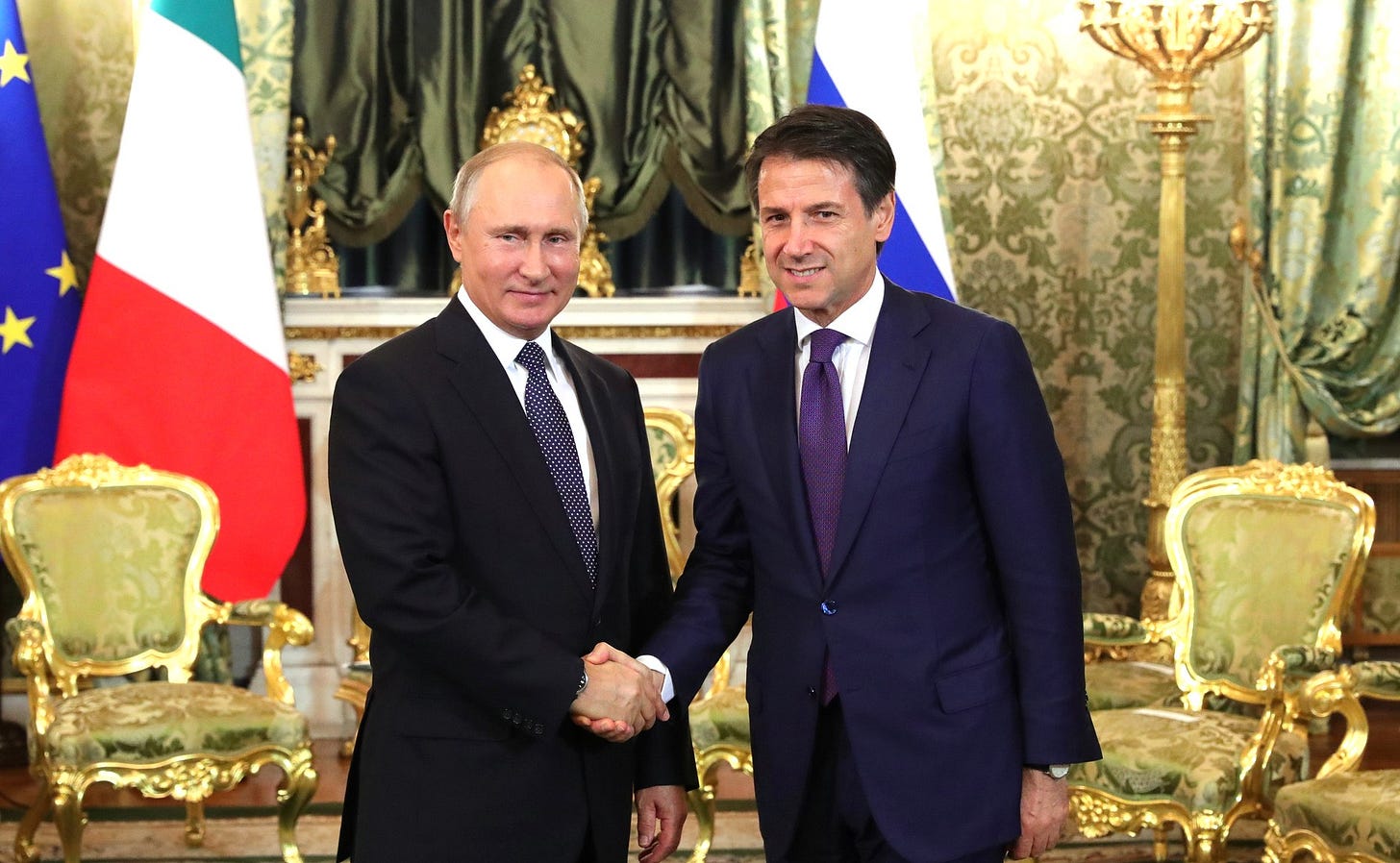
Who exactly is Giuseppe Conte?
By Oogiook2
Giuseppe Conte, leading his party, is bringing down Draghi’s national unity government. But who is Giuseppe Conte, really?
In the general election of 2018, the solution to a hung parliament in Italy was a premier agreed upon by the right-wing Lega party and the left-populist Five Star party. They chose Giuseppe Conte, a law professor picked from relative obscurity with no political history and no party membership. Many, perhaps a majority, of Italian citizens heaved sighs of relief. Conte was urbane, well-spoken, coherent, and thoughtful. He inspired trust and admiration. Brussels loved him, particularly since it had feared far less palatable Italian scenarios. In July 2020, after long and difficult negotiations, Conte triumphantly secured 209 billion euros in loans and grants from the EU to underpin Italy’s recovery from Covid19 and to build “Italy 2.0.”
Yet all was not, and is not, as it seems. Early on, Conte’s academic credentials were scrutinized along with anything else the press could discover about the academic now-premier. They hit pay dirt. It seemed that several of the professor's claims to have studied or worked abroad in various prestigious universities in America, France, Malta, and elsewhere were exaggerated, unverifiable, or flatly denied by the institutions in question. The fallout from these revelations was embarrassing, but in a post-fact world, it wasn’t fatal to Conte’s political career. The news cycle rolled on.
Flash forward to today. The Five Star party, which Conte now leads, is purposefully trying to collapse the coalition government led by Mario Draghi, refusing to back a critical bill with measures designed to aid financially struggling Italians, along with other urgent provisions.
Draghi’s national unity government has performed with thoughtfulness and sophistication to counteract the ongoing economic devastation wrought by the pandemic, and now, to respond to Russia’s attack on Ukraine and the growing prospect of a direct confrontation between Russia and the West.
At a time like this, the desire to return Italy to a cauldron of inter-party squabbling ahead of a general election strikes many Italians and observers as inexplicable. Moscow will be delighted, certainly, for with Draghi at the helm, Italy failed to submit to Moscow’s belligerence. His recent words and actions suggest Conte will be much more malleable.
There are many unanswered questions here, and one of the most intriguing and perhaps most urgent is this: Who, exactly, was Giovanni Conte when he secured the joint approval of the Lega and Cinque Stella to take the most powerful position in Italian governance? How was he selected? And who is he really—no bullshit—now?
As far as I know, the backstory remains a mystery. The truth will surely out, in the fulness of time. But given the crisis we face and the stakes for Italy and Europe, we need to know right now. Who is this guy?
Biden in the Middle East
By Gabi Mitchell, Jerusalem
(For the unabridged version, check out Invisible Boundaries.)
There may never be a US president with a deeper, more personal relationship with Israel than Joe Biden. While I watched the various components to his visit, how he transformed a pro forma stop at Yad Vashem into a tearful moment between Holocaust survivors and the Commander in Chief, how transparently he spoke to the Israeli press about the importance of bilateral relations and the limits of American power, how he worked the crowd at the 21st Maccabiah Games, and how he—for the first time in his presidency—articulated a continued US commitment to the two-state solution and Palestinian national aspirations, I couldn’t help but notice how his demeanor differed from his predecessors, Donald Trump and Barack Obama. He was in his element, comfortable both with his surroundings and his hosts, and exuded a restrained, knowing confidence.
Biden’s visit nonetheless exposed ongoing policy differences between Israel and the US, most notably, about how to address the Iranian threat. But just as this visit was important for Biden, it was equally important for Prime Minister Yair Lapid. Operating as a caretaker during an election cycle, Lapid’s goal was to demonstrate his bona fides with the President and show the Israeli electorate that cooperative US-Israel relations don’t depend entirely on Benjamin Netanyahu. So public differences were kept at a minimum. Considering that Israeli social media spent more time debating the merits of an Israeli pop star who, for religious reasons, refused to shake Biden’s hand, I’d say Biden’s visit to Jerusalem went off without a hitch.
In contrast to his celebratory visit to Jerusalem, the second leg, in Jeddah, presented Biden with a more challenging climb. US-Saudi relations are far more transactional than those between the US and Israel. The personal animus between Biden and Saudi Crown Prince Muhammad bin Salman was front and center this weekend. Each facial expression was analyzed again and again, to the point it was easy to lose track of the policy discussions and the purpose of Biden’s visit.
It might be argued this tête-à-tête was the only reason for Biden’s stop in Jeddah (although I’d note that his attendance at the GCC+3 summit and meetings with Arab leaders such as UAE President Sheikh Mohamed bin Zayed and King Abdullah II of Jordan were also significant). The US needs Saudi Arabia to increase the flow of oil to alleviate the pain at the pump and forestall a recession. The price was Biden’s moral high ground, which he sacrificed by meeting with bin Salman, who is believed to have ordered the murder of Saudi-American journalist Jamal Khashoggi in 2018.
Unsurprisingly, Bin Salman denied responsibility for Khashoggi’s death. What fascinated me was the way he held a mirror up to the US president, reportedly reminding him of such American failings as Abu Ghraib and how the Biden administration handled the killing of Palestinian-American journalist Shireen Abu Akleh. Prince Faisal bin Farhan, the Saudi foreign minister, told reporters that incidents like Khashoggi’s murder happen everywhere:
These are issues, mistakes that happen in any country, including the US. The Crown Prince pointed out that the US has made its own mistakes and has taken the necessary action to hold those responsible accountable and address these mistakes just as the kingdom has.
I will let experts on US-Saudi relations weigh in about whether using this kind of direct language with an American president is atypical or par for the course. The game of moral jousting with the US was largely made possible, I sensed, by former President Donald Trump. When I read Bin Salman’s comments, I couldn’t help but think of Trump’s 2017 interview with Bill O’Reilly during which he said, “There are a lot of killers. You think our country’s so innocent?”
One of Biden’s foreign policy goals in the post-Trump era was reasserting US moral leadership in the international community. Is that possible under the current circumstances? Much like the tale of the Little Dutch Boy, the US and her allies managed to take the right position on Ukraine. But as the conflict with Russia deepens and in the process disrupts the global economy, Western leaders will be compelled to make a series of moral tradeoffs to ensure that oil and gas continues to flow and their economies remain stable while they try to defeat Putin. I don’t think most Republican presidents would do any differently. These are the sacrifices that come with living in a flawed, unbalanced world.
Meanwhile, Israel-Saudi relations entered a new chapter. On July 14, Israel reportedly approved an arrangement that would permit Egypt to transfer sovereignty of the Red Sea islands of Tiran and Sanafir to Saudi Arabia. Hours later, Saudi Arabia released a statement indicating that it will open its airspace to Israeli flights to the Far East, as well as develop direct flights between Israel and Saudi Arabia for Muslim pilgrims.
These two issues have been discussed at length over the years as Israeli and Saudi strategic interests have grown more closely aligned and the parties have sought to take small steps towards normalization.
Saudi officials reiterated during Biden’s visit that opening the country’s airspace had “nothing to do with diplomatic ties with Israel” and normalization was not on the horizon. For full diplomatic ties to be established, Climate Envoy Adel Al-Jubeir told CNBC, the two-state solution must be realized. (Biden reiterated his commitment to the two-state solution, although also commented the “ground isn’t ripe” for Israeli-Palestinian negotiations.)
The truth probably lies between the optimism of Israeli and US officials and the denial of Saudi officials. Israel and Saudi Arabia are in dialogue, and the forces pushing them together (US withdrawal, Iran) aren’t going to magically disappear in the coming years.
At the same time, Israel hasn’t delivered a diplomatic response to the 2002 Arab Peace Initiative, a proposal that both Saudi officials and Palestinian Authority President Mahmoud Abbas mentioned this week. Israeli-Saudi cooperation may expand, but going public may depend on Israel’s willingness to enter negotiations with the PA and reach a resolution to the conflict.
Sometimes the most important elements of a presidential visit are overshadowed by greater media narratives. Several items worthy of note:
The joint statement between Biden and King Abdullah II mentioned “including the Palestinians in regional cooperation projects”—an indirect nod to the Abraham Accords and the Israel-Jordan water-solar deal. The question of Palestinian participation is an important one, and divisive in Israeli circles. I certainly believe that finding ways to incorporate the Palestinian Authority in regional processes would be difficult, but the reward would be raising the ceiling for regional cooperation and building confidence between Israeli and Palestinian officials who don’t interact with one another nearly as much as they ought to.
In the ongoing regional dispute with Iran, some—like the UAE—are hedging their bets. While Lapid publicly pushed Biden to get tough on Iran, UAE presidential adviser Anwar Gargash implied that his country was considering de-escalation and normalizing diplomatic ties with Tehran. From one perspective, this is a continuation of business as usual. As nuclear talks flag, the UAE, one of Iran’s most important trade partners, is positioning itself to be a broker between the Islamic Republic and the Gulf states. But it’s also a reminder that in international diplomacy and in particular in the Middle East, actions speak louder than words.
The US-led I2U2 forum (India, Israel, UAE, US) met virtually during Biden’s visit in Jerusalem. In an increasingly connected world, I2U2 shows the potential for collaboration among states that operate in distinct geopolitical spaces but find that their shared interests warrant a more formal diplomatic approach. If coordinated effectively, the I2U2 forum could connect the Indian subcontinent to the West via the Middle East and Mediterranean in perhaps the most meaningful way in 80 years, and link US-led strategic partnerships around the world. (I’m thinking of the Quad, NATO, and the growing cooperation between India, UAE, Israel and other Mediterranean states).
Why is oil fungible and not gas? Because oil is liquid at room temperature. This is why benchmark oil prices around the world rarely differ by much. Although you can turn gas to LNG through cryogenic liquefaction, this requires a lot of energy and specialized equipment, as does transporting and receiving it. The process is very expensive, and it can’t be done everywhere. Thus the cost of LNG is often as much as an order of magnitude greater than pipeline gas. Europeans are now paying about nine times as much for LNG shipped from the US as Americans are paying for gas delivered by pipeline, even though it comes from the same sources.
A pseudonym, obviously.





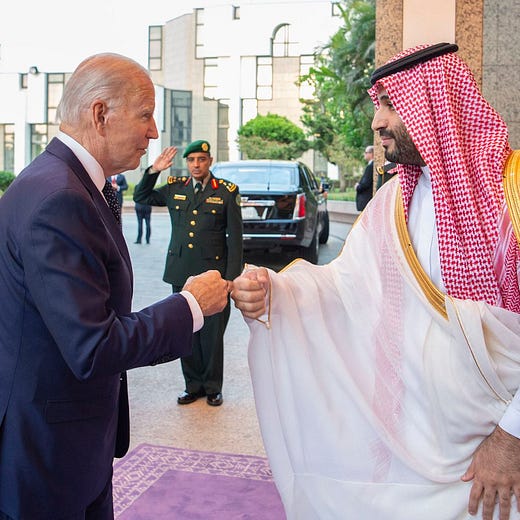
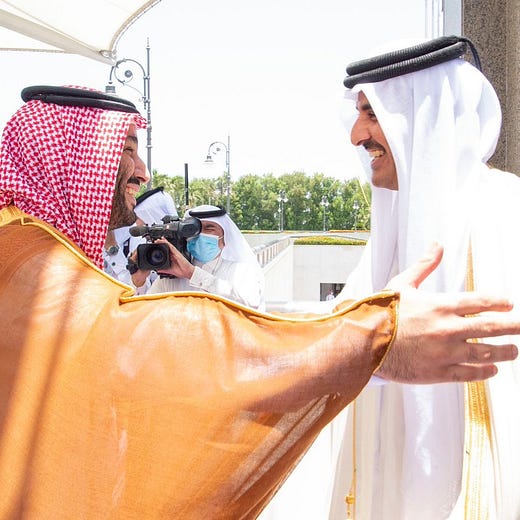
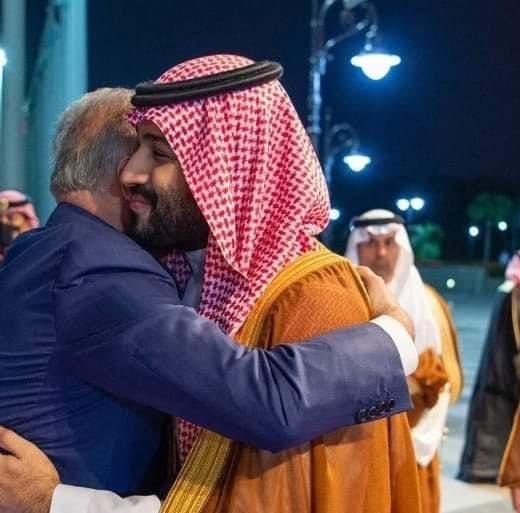
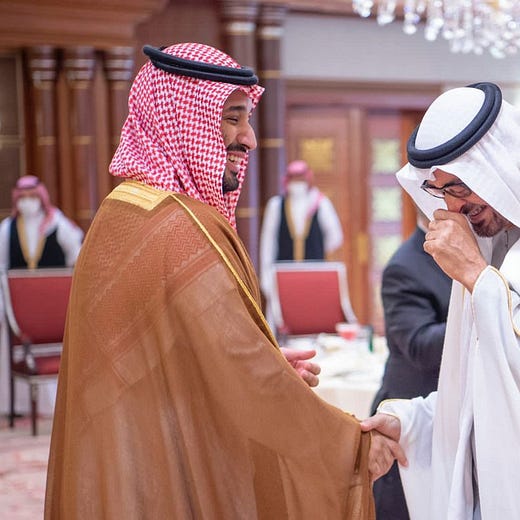

I get Mr. Zubrin's frustration, and polemics that please the people who agree with you can be fun and cathartic, but they're generally not a great way to shift debate. The difficult, frustrating and generally unappealing job of the public expert in a robust democracy is to provide options and to help make a persuasive case for the best ones.
Cosmo Globalist's appeal is that it brings info and thoughts that we might not otherwise come across. We see plenty everywhere about the extreme/fixed positions in German politics, but I'd be very interested to read a nuanced piece on what I suspect is a complex overlap of political issues for "ordinary" Germans - how they got here, what the key points of domestic politics are, how Germans group around these issues (e.g. by economic class? by geography?) and what the various political players can/are/will be doing about it.
German leaders are nuts. Beware of those notorious earthquakes and Tsunamis in Germany (sarcasm). Germany is probably the planet’s most qualified candidate to oversee safety of nuclear power. Merkel responded emotionally, not logically to Japanese nuclear disaster. Merkel also responded emotionally to the migrant crisis in the absence of a necessary European border/immigration infrastructure. I give Germany a break on the issue of arming Ukranians because that is involvement in war and an invitation to Russian retaliation. Not that Putin needs an invitation. I side morally with Ukraine autonomy. At home in USA, we also pretend that involvement in war (sending war machines to Ukraine) is not noticed by Putin.